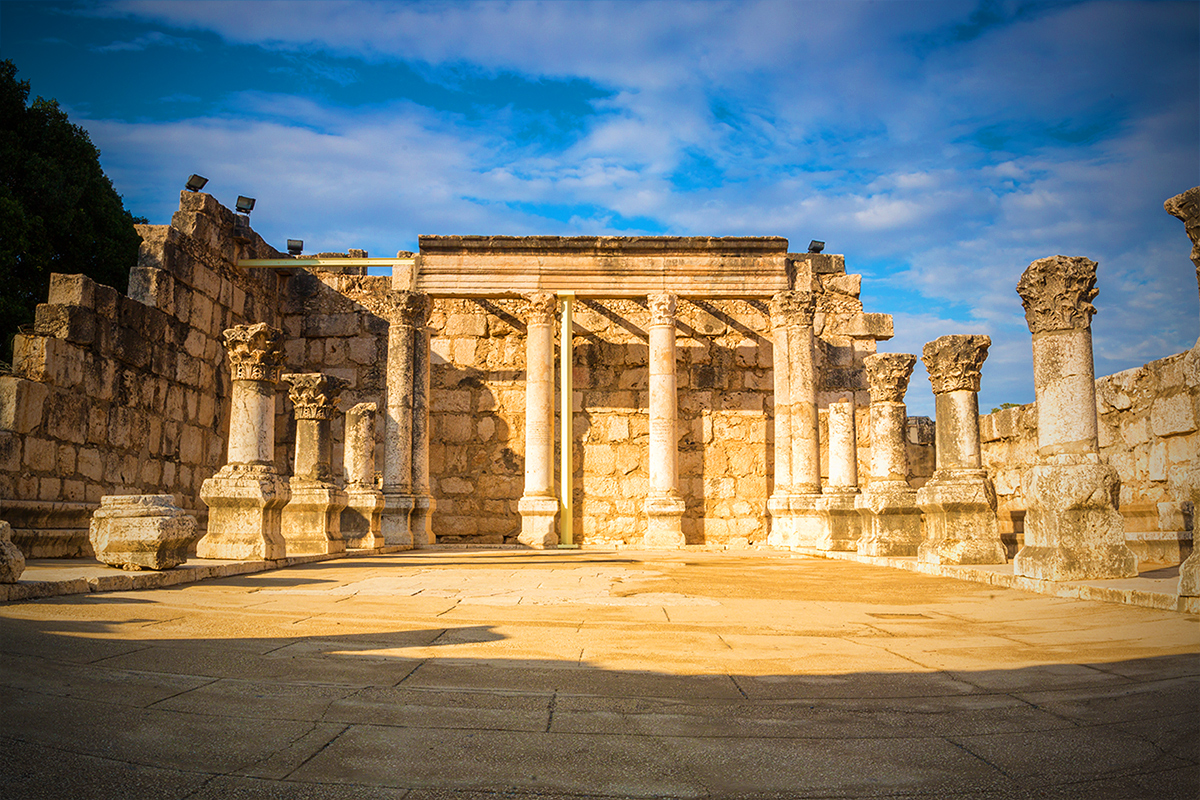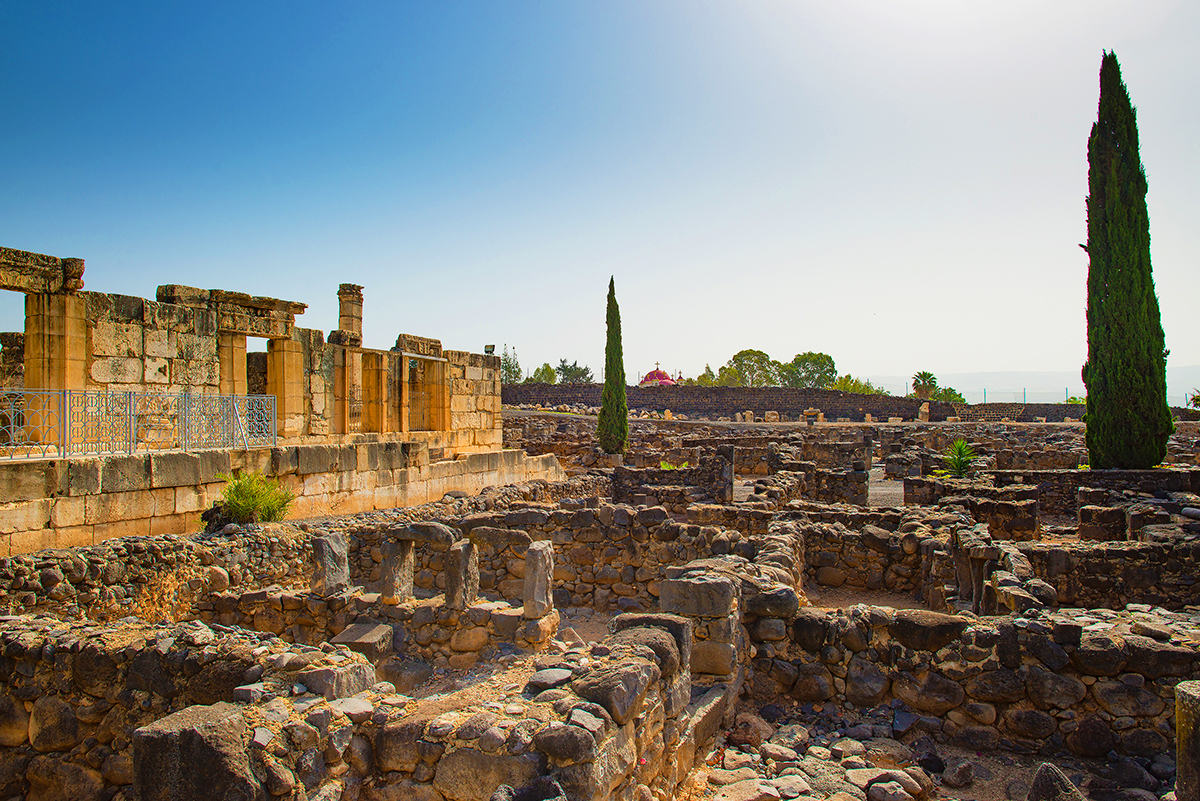Passover Meal And Sabbath Ends With “Next Year In Jerusalem”

Capernaum, Israel
In the phrase, “Next Year in Jerusalem,” Jerusalem indicates a future city–and a City-Temple, rebuilt as the Messiah arrives. Most Jews express this messianic longing at the end of the Passover seder meal, as well as at the end of each Sabbath, adding the words hoping that the Messiah should come “speedily in our day.”
The sadness of the destruction of Jerusalem in the year 70 is shown in the artistic renditions of the “Magen David” (Star of David) on synagogues that have noteworthy exceptions. There are two of these at Capernaum. One of them is straight up; the other (like most of these symbols everywhere else), are at a slight right slant. The menorah (seven-branched candelabra) is another example and the fact that the symbols are slanted denotes the destruction of the temple and Jerusalem. The ones at Capernaum and a few others that are straight seem to indicate that they were carved while the temple was still standing. Incidentally, all synagogues face toward Jerusalem.
Synagogue At Capernaum

Mormon Travel To Capernaum
At Capernaum, there are two doorways in and out of the synagogue. After the temple was destroyed, all synagogue entrances (coming from Jerusalem) were closed and a back door was opened. The symbolism may mean that we are now coming from the Diaspora into the place of worship and must return to the Diaspora. Jews’ synagogue prayers used to end with the hopeful words, “Next year in Jerusalem.” Now that Jerusalem is restored, the prayers read, “Next year in Jerusalem – rebuilt.” The Capernaum synagogue has both a pre- and post-temple destruction entrances.
One can consider that the words, “next year” brings a sense of being at the beginning, or on the way, to Jerusalem, as in a heavenly quest for betterment, a messianic hope.

